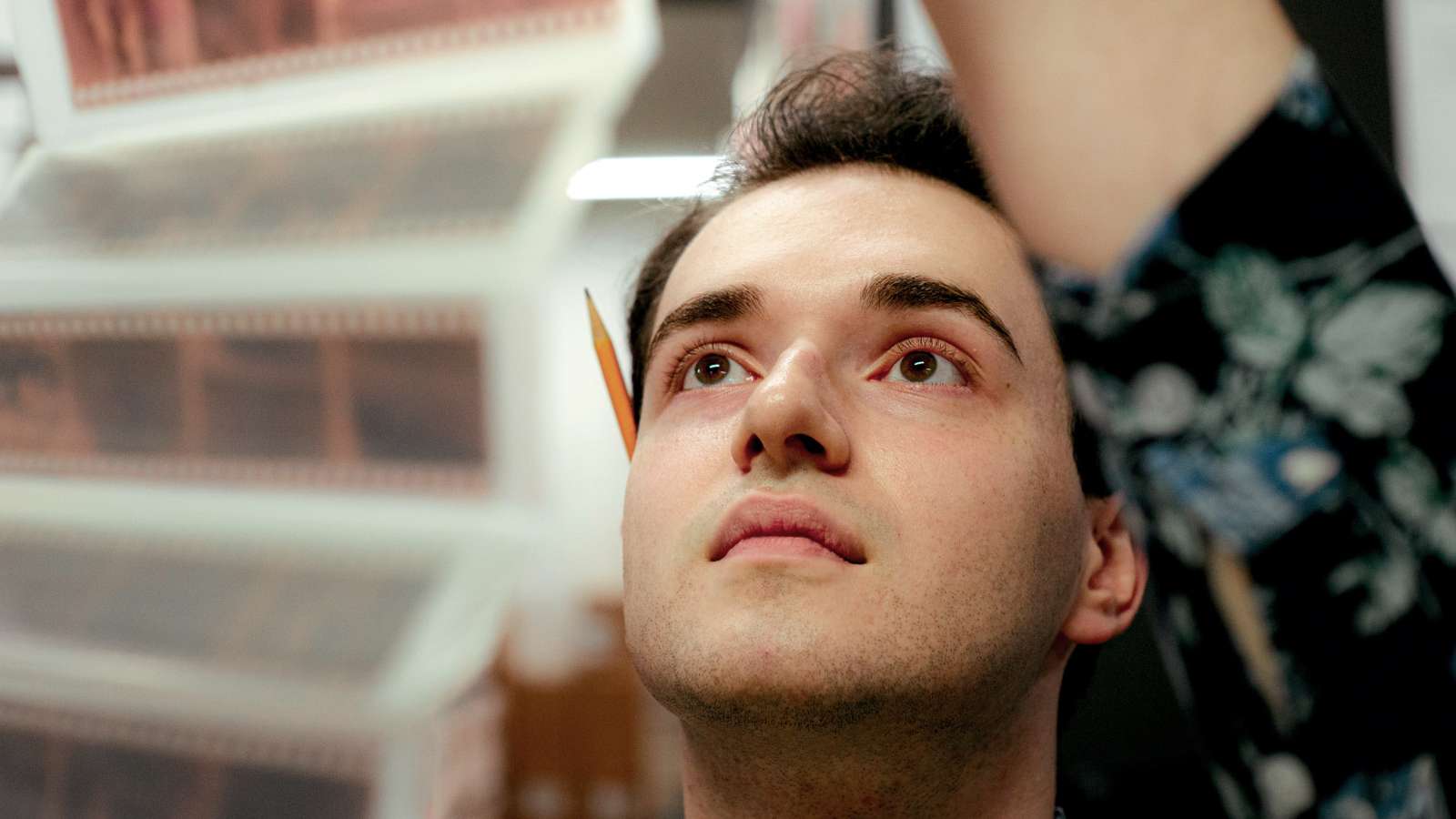What's the best way to tell a World War I veteran’s life story? How can we better fight bacterial infections? Eleven College of Liberal Arts and Sciences’ students explored these questions and more recently as recipients of the Dean’s High Impact Award for Undergraduate Research.
Through the award, students received funding and the opportunity to conduct research alongside faculty mentors; here’s a sample of their projects.
Arranging a Life’s Story
This summer, Layk Nollen was tasked with reorganizing the Charles P. Howard Collection at the University Archives and Special Collections Department at Drake University.
A World War I veteran, Howard graduated from Drake Law School and became one of Iowa’s most successful attorneys. He also owned several newspapers and became a correspondent for the United Nations. Howard’s collection comprises items from all aspects of his life, making Nollen’s work challenging.
“My job was to arrange the materials in a way that would make sense to a person viewing the collection,” says Nollen, a senior studying history. “In reprocessing the collection, I had to make it tell a story –– Howard’s story.”
Investigating Vocals
Since childhood, Carlee Carpenter has been interested in how singing voices change over time.
Now a junior studying voice performance, Carpenter spent the summer visiting music theater camps and a music studio to collect data from singers ages 5 to 12. Children generally sing in three vocal registers, explains Carpenter –– the head voice, chest voice, and a voice that blends the two. Shifts happen naturally during a song, often when a melody ascends and descends.
“It’s been fascinating and fulfilling to work through our data collection, meet young singers, and learn more about their voices,” Carpenter says.
Researching Resistance
As a member of the Sashital Lab in the Roy J. Carver Department of Biochemistry, Biophysics, and Molecular Biology, sophomore Sharon Tsimese’s research project focused on bacterial resistance.
Bacteria have evolved to develop many defense systems that protect them against viruses, Tsimese explains, and she examined a new system named Septu, discovered in 2018.
“This summer, my successes included producing an accurate and reproducible Michaelis-Menten Curve for the protein complex that constitutes the Septu anti-phage defense system, and elucidating the activity of these various proteins through different activity assays and extensive testing, ultimately helping us narrow down our focus to the key areas to explore in this defense system,” Tsimese says.
